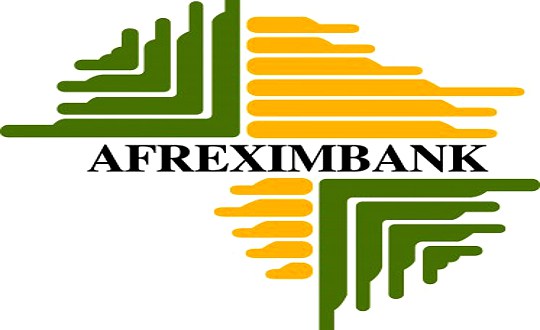African Export-Import Bank (Afreximbank) has hailed the contribution of the Intra African Trade Fair (IATF) to addressing the challenge of African businesses transacting business with counterparts within the continent.
Amr Kamel, Afreximbank’s Executive Vice President for Business Development and Corporate Banking, in a statement on Saturday, said that the decision to establish the IATF had been reached following surveys by the bank.
“Surveys by Afreximbank showed that lack of information about how and who to do business with within Africa was a recurring challenge for most businesses.
“The IATF2021 Conference offered important opportunities for exchanging information and ideas in line with the objective of establishing trade pathways across Africa to bring the AfCFTA to life.
“We must continue to create innovative financial products that will see the improvement of the AfCFTA,” he said.
He said that the conference was proof of the impact which Afreximbank continued to have in Africa, as earlier in a session on investment into Africa, participants had expressed great optimism about Africa’s future.’
Charles Robertson, Chief Economist at Renaissance Capital, told the audience that “Africa continues to outperform other markets in the midst of a global recession.”
Robertson highlighted the importance of adult literacy rates in a country’s ability to reach its full industrialisation potential.
He added that measures could be used to quickly identify which countries on the continent showed the most immediate room for growth.
Describing Morocco, Egypt, Ghana, Nigeria, Zambia and Tanzania as the frontrunners, he said that African countries with the lowest literacy rates ran the risk of falling behind in the industrialisation process.
Abdou Souleye Diop, the Managing Partner at Mazars, singled out Morocco as a benchmark for how an African economy could stimulate a region’s economic growth, noting that the country was attracting both global and regional foreign direct investment and making itself a business, transport and economic hub.
“Morocco has the fastest growing economy that presents real investment opportunities in the automotive, textiles, digital and agro-industries,”
“What Morocco did differently is that it prioritised the private sector locally and identified Moroccan industrial champions to promote,” Diop said.
According to him, the greatest hindrance to the realisation of the goals of the AfCFTA is likely to come from the inhibited movement of people.
He urged African governments to sign a free movement of people agreement in order to ensure that Africa’s intellectual property did not bleed into other continents that might be more accepting of African labour.
Ndiarka Mbodji, Founder & Chief Executive Officer, Kowry Energy GmbH, in his contribution described the inconsistency of energy supplies as one of the greatest challenges to Africa’s industrialisation.
He urged African countries to define the right energy needs for themselves and to ensure that there was low-cost energy available at the point of manufacturing, particularly for SMEs, in order to ensure that the industrial sectors would grow.
Lekau Sehoana, CEO of Drip SA, which manufactures and distributes footwear and plans to leverage the opportunities brought about by the AfCFTA, argued that African SMEs should retain the ability to control how consumers engaged with their products right up to the point of purchase and delivery.
Retaining that ability is vital to determining how the products reach new markets across the continent and how new consumers engage with the brands. In the final session of the day,” Sehoana said.
Ebrahim Patel, Minister of Trade and Industry of South Africa, presented the various interventions which his ministry had in place to support traders doing business in the country.
Paulo Gomes, Founder of Paulo Gomes & Partners, called for increased collaboration between the private and public sectors.
“We need to revisit our economies and introduce ethics and values, and layer, this with thinking out of the box if we are to fully leverage trade opportunities.




